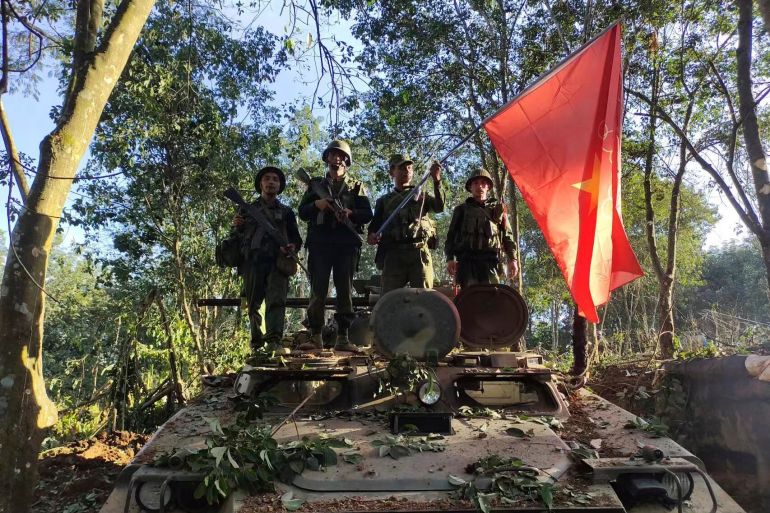China steps up armed patrols on border as Myanmar conflict deepens
China has reported artillery shells injuring residents and damaging buildings in its territory amid fighting in Shan State.
Fighting has intensified over the past year after a number of ethnic armed groups formed an alliance against the military [File: The Kokang online media via AP]Published On 26 Aug 202426 Aug 2024
China’s military has stepped up army and police patrols along its western border with Myanmar amid deepening conflict between the military regime and armed groups opposed to its coup.
The patrols, which also involve air surveillance, will focus on the towns of Ruili, Zhenkang and other front-line areas, the military said in a statement on Monday.
Keep reading
list of 4 itemsend of list
Ruili, in China’s southwestern province of Yunnan, is a main route for people and goods heading to and from Myanmar, but China has reported artillery shells injuring residents and damaging structures in its territory amid rising conflict across the border in Myanmar’s Shan State.
Fighting has escalated there since late year when ethnic armed groups formed an alliance to push the military from the area.
A Beijing-brokered truce in January broke down in late June and the armed groups say they have overrun multiple Myanmar military posts and taken control of key towns in a renewed, and expanded, offensive.
The military has responded with bombing raids and drone attacks, and restricted internet and mobile phone networks.
Thousands of people have been forced to flee their homes.
The Southern Theater of the Chinese People’s Liberation Army said it had also organised army units to test soldiers’ ability to “quickly move, block and control, and strike together, and maintain security and stability in the border areas”, the military said.
Chinese Foreign Minister Wang Yi also said recently that China would continue “its commitment to restore peace and stability in Myanmar”.
Myanmar was plunged into crisis when the military overthrew the elected government of Aung San Suu Kyi in February 2021.
